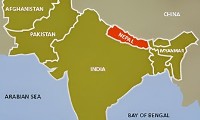 REPORT
REPORT
By Yamanta Raj Niroula
International Correspondent
Kathmandu, Nepal
Project Management Talent Gap and Opportunities
- Introduction
The Project Management Institute’s (PMI) Global Project Management Talent Gap report, published in May 2025, indicates that by 2035, the global demand for project management professionals will increase by approximately 29.8 million. Regions such as South Asia are anticipated to experience heightened demand as they undertake significant projects in infrastructure, digital technology, and healthcare.
This report evaluates Nepal’s situation within the framework of these global trends, analyzing projections for demand, sectoral drivers, underlying causes of talent shortages, and strategies to address the gap.
- Global Context: Rising Demand for Project Managers
PMI’s 2025 Talent Gap report shows a significant rise in the need for project professionals around the world. Currently, there are around 39.6 million project workers, and by 2035, there will be a need for an additional 64%. Most of this growth will come from fast-growing economies. South Asia, Sub-Saharan Africa, and China are highlighted as regions experiencing the fastest growth due to large investments in infrastructure and digital projects.
These trends are significant for Nepal. As South Asia’s economies grow, project managers will play an important role in sustainable development. For Nepal, a lower-middle-income country with ambitious development plans, the PMI report indicates both a challenge and an opportunity.
The following sections examine Nepal-specific context.
- Demand Forecast for Project Professionals in South Asia
The PMI report presents country-specific projections on the current project management workforce along with the anticipated future demand. For South Asia, the demand is projected to rise substantially, ranging from 68% to 91%.
Current Market Size, Projected Demand, Talent Gap, and % Demand Growth by Country (Source: Global Project Management Talent Gap, PMI, 2025)
The data shows that Nepal’s project management workforce needs to nearly double by 2035. Although the gap is smaller than in the neighboring countries like India, Bangladesh, and Pakistan, it is still significant when compared proportionally to many other countries. According to PMI, Nepal will require an additional 24,000 to 32,000 qualified project management professionals by 2035, meaning 51 to 67% more than the current number.
PMI states that South Asia will experience major changes in sectors such as construction, manufacturing, IT, and healthcare. In these growing industries, each percentage point of economic growth will lead to increased demand for project management roles. For instance, as Nepal starts large infrastructure projects (like roads and hydropower) and digital initiatives (such as e-government and telecom expansion), the need for skilled project planners, schedulers, and risk managers will rise significantly.
More…
To read entire report, click here
How to cite this work: Niroula, Y. R. (2025). Project Management Talent Gap and Opportunities; Project Management Update from Nepal, report, PM World Journal, Vol. XIV, Issue VI, June. Available online at: https://pmworldlibrary.net/wp-content/uploads/2025/06/pmwj153-Jun2025-Niroula-Project-Management-Update-from-Nepal.pdf
About the Author

Yamanta Niroula
Kathmandu, Nepal
![]()
Yamanta Niroula is a seasoned Project Management Professional with over 17 years of extensive experience in engineering, infrastructure development, and project management across diverse global environments. His expertise includes project planning, procurement, contract management, stakeholder coordination, and risk mitigation, with a strong focus on executing projects in remote and developing regions under complex operational conditions.
Yamanta holds a Bachelor of Engineering in Civil Engineering and a Master of Arts in Rural Development, along with a Diploma in Civil Engineering. He is a certified Project Management Professional (PMP®) and an active member of the Project Management Institute (PMI) since 2010.
Yamanta has extensive experience in project management, successfully overseeing all stages of construction projects from initial planning to final evaluation. He specializes in managing complex processes, including procurement, contracting, and execution, while maintaining efficiency and regulatory compliance. By staying updated on industry standards and advancements, he has ensured that projects are forward-thinking, sustainable, and adaptable to changing environments.
Yamanta has successfully managed large-scale infrastructure projects, including roads, electrical infrastructure, wastewater treatment plants, logistics facilities, and disaster recovery programs. He has served in various capacities as Project Controls Specialist, Design Manager, Planning Manager, Engineer and Project Manager across international organizations and UN agencies in Nepal, the Maldives, Singapore, Afghanistan, the Philippines, Nigeria, Yemen, Sudan, and Ethiopia.
He has been responsible for project design, planning, execution, and control, ensuring timely delivery, budget adherence, and quality assurance while enhancing overall program outputs.
Yamanta lives in Kathmandu, Nepal and can be contacted at niroulayr@gmail.com
View his full correspondent profile at https://pmworldlibrary.net/yamanta-raj-niroula/
To view other works by Yamanta Ray Niroula, visit his author showcase at https://pmworldlibrary.net/authors/yamanta-raj-niroula/









